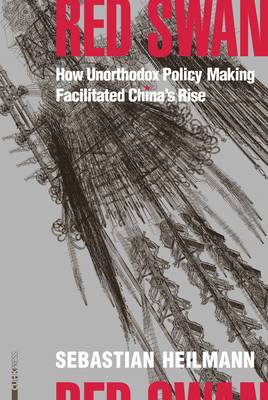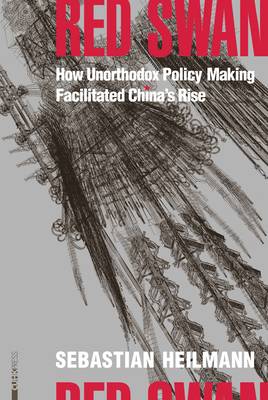
- Afhalen na 1 uur in een winkel met voorraad
- Gratis thuislevering in België vanaf € 30
- Ruim aanbod met 7 miljoen producten
- Afhalen na 1 uur in een winkel met voorraad
- Gratis thuislevering in België vanaf € 30
- Ruim aanbod met 7 miljoen producten
Red Swan
How Unorthodox Policy-Making Facilitated China's Rise
Sebastian HeilmannOmschrijving
China stands as a major "Red Swan" challenge to the social sciences. The political resilience of the Communist party-state, in combination with a rapidly expanding and internationally competitive economy, represents a significant deviant and unpredicted case with a huge potential impact not only on the global distribution of political and economic power but also on the global debate about models of development. China's exceptional development trajectory thus challenges conventional wisdom as well as conventional models of political change. The traditional approach to systemic classification is not helpful in understanding the dynamics in China, a system which is unexpectedly adaptable and versatile in many policy fields, particularly as regards economic and technology policy.
To avoid the inherent limitations of typological approaches, this book uses analytical approaches drawn from policy studies. The focus is on the manner in which action programs in China's governmental system can be developed, formulated, implemented, adjusted, and revised. Policy making is therefore seen in this book as an open-ended process with an uncertain outcome, driven by conflicting interests, recurrent interactions, and continuous feedback--it is not seen as being determined by history, regime type, or institutions in a straight-forward way. Key to this are the political and administrative methodology as well as the capacity to deal with both existing and emerging challenges, the correction mechanisms when things go wrong and conflicts arise, and adaptive capabilities in a constantly changing economic or international context.Specificaties
Betrokkenen
- Auteur(s):
- Uitgeverij:
Inhoud
- Aantal bladzijden:
- 250
- Taal:
- Engels
Eigenschappen
- Productcode (EAN):
- 9789629968274
- Verschijningsdatum:
- 3/04/2018
- Uitvoering:
- Hardcover
- Formaat:
- Genaaid
- Afmetingen:
- 157 mm x 234 mm
- Gewicht:
- 566 g

Alleen bij Standaard Boekhandel
Beoordelingen
We publiceren alleen reviews die voldoen aan de voorwaarden voor reviews. Bekijk onze voorwaarden voor reviews.











